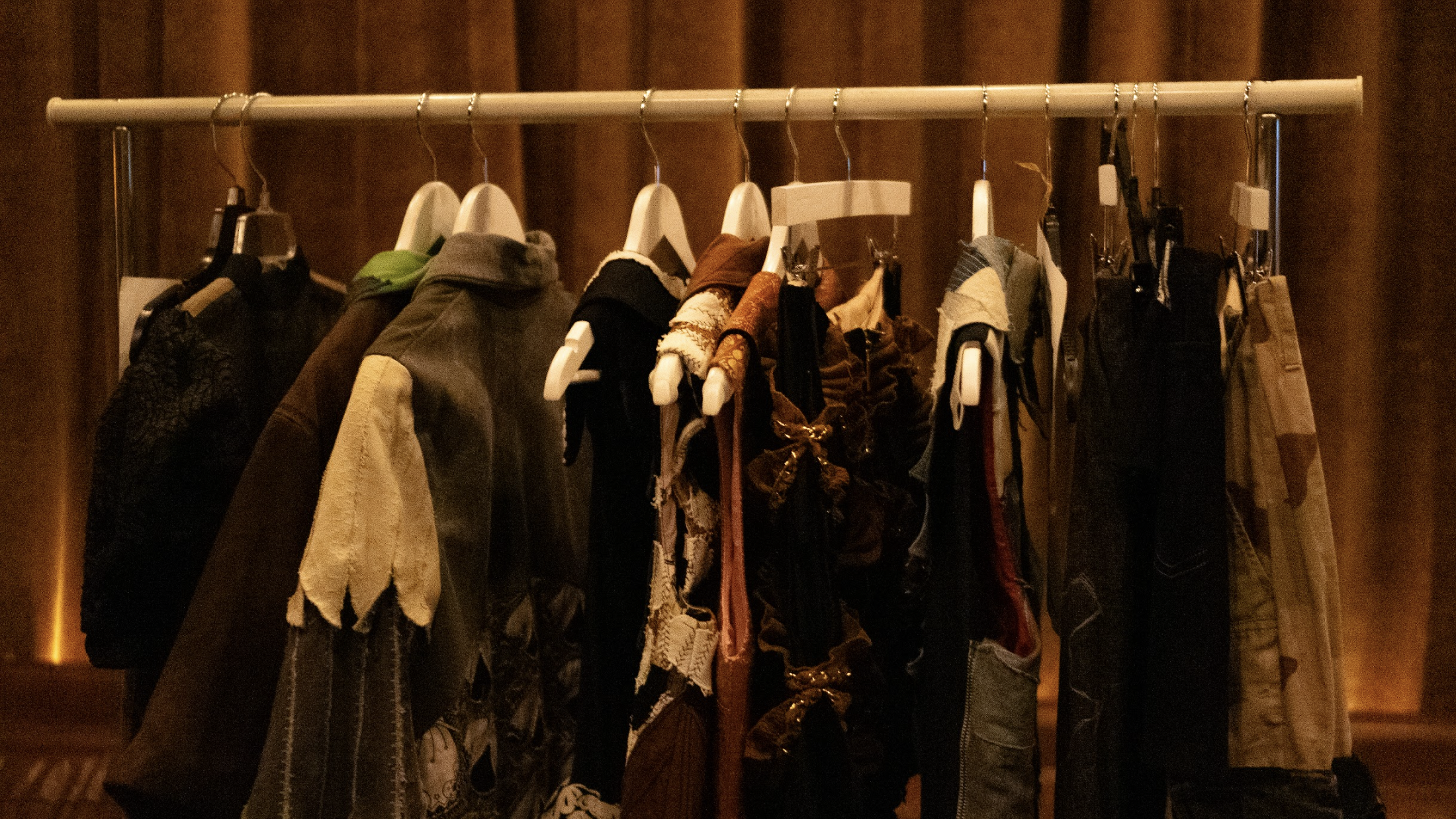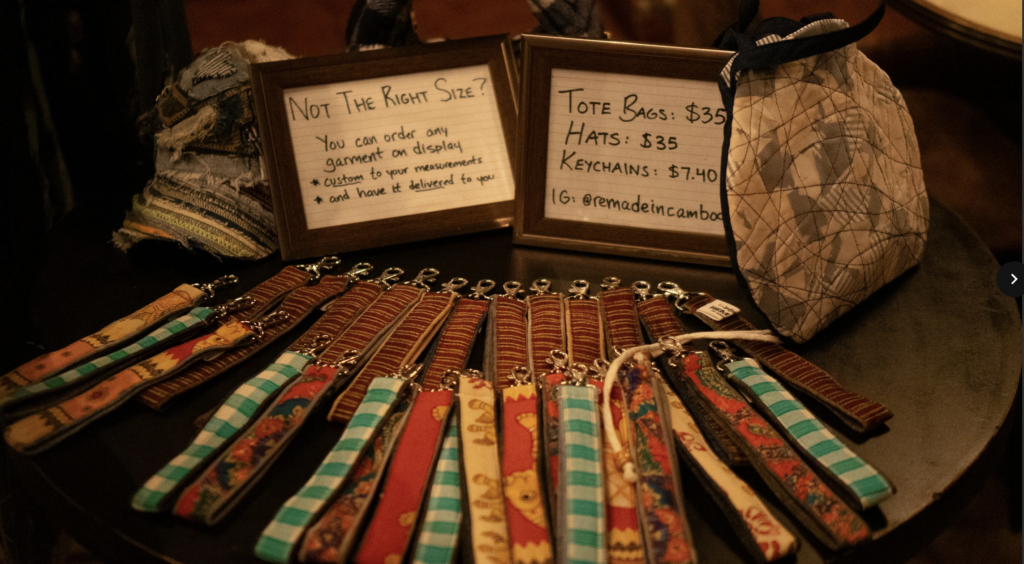

“Ethics are Woven into Each Piece”
IIE Centennial Fellow Alyssa Kardos Loera Aims to Reduce Textile Waste and Empower Khmer Designers in Cambodia
October 21, 2024
Alyssa Erin Kardos Loera, IIE Centennial Fellow 2023-2024
Cambodia, like in many parts of the world, faces increased vulnerabilities due to climate change, including more frequent droughts and intense flooding, which has damaged or destroyed homes and interrupted rice and other agricultural production. In addition, recent reports have found that international textile waste is contributing to work conditions that leave Cambodian laborers ill. Inspired to take action, Georgetown University alumna Alyssa Kardos Loera earned a Fulbright English Teaching Assistant grant to create ReMade, a locally-focused enterprise to both upcycle leftover textiles and support local fashion designers. In her second blog entry, Kardos Loera provides an update on her business and explores the complexities of climate action and socio-economic inequity.
Consider the tags on your clothing, and you might see labels that read “Made in Cambodia,” “Mexico,” “Vietnam,” “Bangladesh,” “Indonesia,” or “China.”
These labels reflect the global journey your clothes have taken, yet for the buyer, it’s just another purchase, costing between $15 to $30 and adding another piece to their collection. If in the US, the consumer might wear the garment seven to ten times before discarding of it in a donation box or the garbage.
But the story doesn’t end there. In one of those countries—let’s take Cambodia as an example—the narrative deepens. A worker in Cambodia earns roughly $200 a month, laboring in intense heat for long hours, often under harsh conditions. The country has recently experienced record-breaking temperatures, reaching 108°F in April 2024. Such extreme heat exacerbates the already difficult working conditions in garment factories, where ventilation is often poor, and heat exhaustion is a constant threat.
The remnants of that shirt—scraps and waste—are often discarded in landfills and rivers or burned for energy. This waste releases CO2 into the atmosphere, sends microplastics into waterways, and produces toxic chemicals that affect workers who burn these materials in kilns.
To add insult to injury, these same workers are then sold the very clothing they produce—or similar items—under pressure to follow global fashion standards. The odds are overwhelmingly against an aspiring designer in Cambodia trying to make a name for themselves on the international stage.
The odds are overwhelmingly against an aspiring designer in Cambodia trying to make a name for themselves on the international stage”
– Alyssa Kardos
As Aja Barber, the author of Consumed, aptly puts it, “Fast fashion is harming a non-white person in the Global South, both at the beginning of its cycle and in the end.”
The fashion industry thrives on social and economic inequities, perpetuating a system where a consumer in the Global North benefits at the expense of a worker in the Global South. One life is exploited so that another may chase the latest trend, with little regard for the environmental or human cost.
While Cambodia faces deep inequities within its own economy, particularly between workers and the extremely wealthy, it’s essential to recognize the broader, global implications of our actions—especially when it comes to climate change.
Though the exploitation of waste and the recognition of local design might seem like recent developments, this narrative is far from new.
The injustice in the fashion industry is a systemic problem embedded in our global systems. Yet what truly captures my attention is the role we all play in this—yours, mine, and everyone who chooses to participate in this industry. Even when we understand the impact of buying into a fashion system rooted in exploitation, the disconnect between our choices and the consequences in distant communities allows us to continue doing it. This disconnect drives me to explore what it truly takes to connect two stories across oceans.
With ReMade in Cambodia, we know we can’t solve the system overnight, but every garment, keychain, and tote we create is a step toward correcting the narrative of fashion. When someone buys one of these items, they are investing in a new system that honors local arts development, waste redemption, and ethical production. Our ethics are woven into each piece.
We are still learning to calculate the full impact of our efforts, but with the collaboration of our sustainability advisors, we are working to measure the CO2 removed from the environment by reusing waste. We are also looking at the reduction of negative impacts when someone buys from ReMade in Cambodia instead of another brand. However, our most immediate measure of impact is seen in the role of young designers. To date, we have worked with 74 young designers, with an average age of 21, helping them establish their brands and find their voice in the global fashion landscape.
After confronting these issues in 2022, shortly after arriving in Cambodia for my Fulbright grant, I was overwhelmed by guilt. So many fashion brands contributing to the issues in Cambodia are either American or primarily selling to American consumers. This realization made me acutely aware of the specific responsibility I have as an American to bridge this gap.

Determined to make that connection, I set a goal to bring Cambodia’s artistry closer to American consumers. In July, with the support of the IIE Centennial Fellowship, Re/Make, and Lula Mae, we held our first pop-up in New York City. In just four hours, we sold over 61 pieces, totaling $3,000 in clothing and products. The proceeds primarily go back to the designers to support their brand development and also to ReMade to ensure the longevity of our project. We had over 50 attendees, and each product purchased reintroduces waste into fashion circularity and sparks meaningful conversations.
Looking forward, our long-term vision for ReMade in Cambodia is to establish a new type of institution—one that recognizes the value of local design, embraces small-batch production, and champions resourcefulness through upcycling. We aim to create a model that not only sustains Cambodian artisans but also sets a precedent for how fashion can be both ethical and innovative. By building this foundation, we hope to inspire other regions and industries to adopt similar practices, ultimately contributing to a more equitable and sustainable global fashion system.
Named in honor of IIE’s Centennial and association with the Fulbright Program, the IIE Centennial Fellowship seeks to help enhance Fulbright as a life-long experience and recognize alumni whose work embodies the program’s underlining values of mutual understanding, leadership, global problem solving, and global impact.